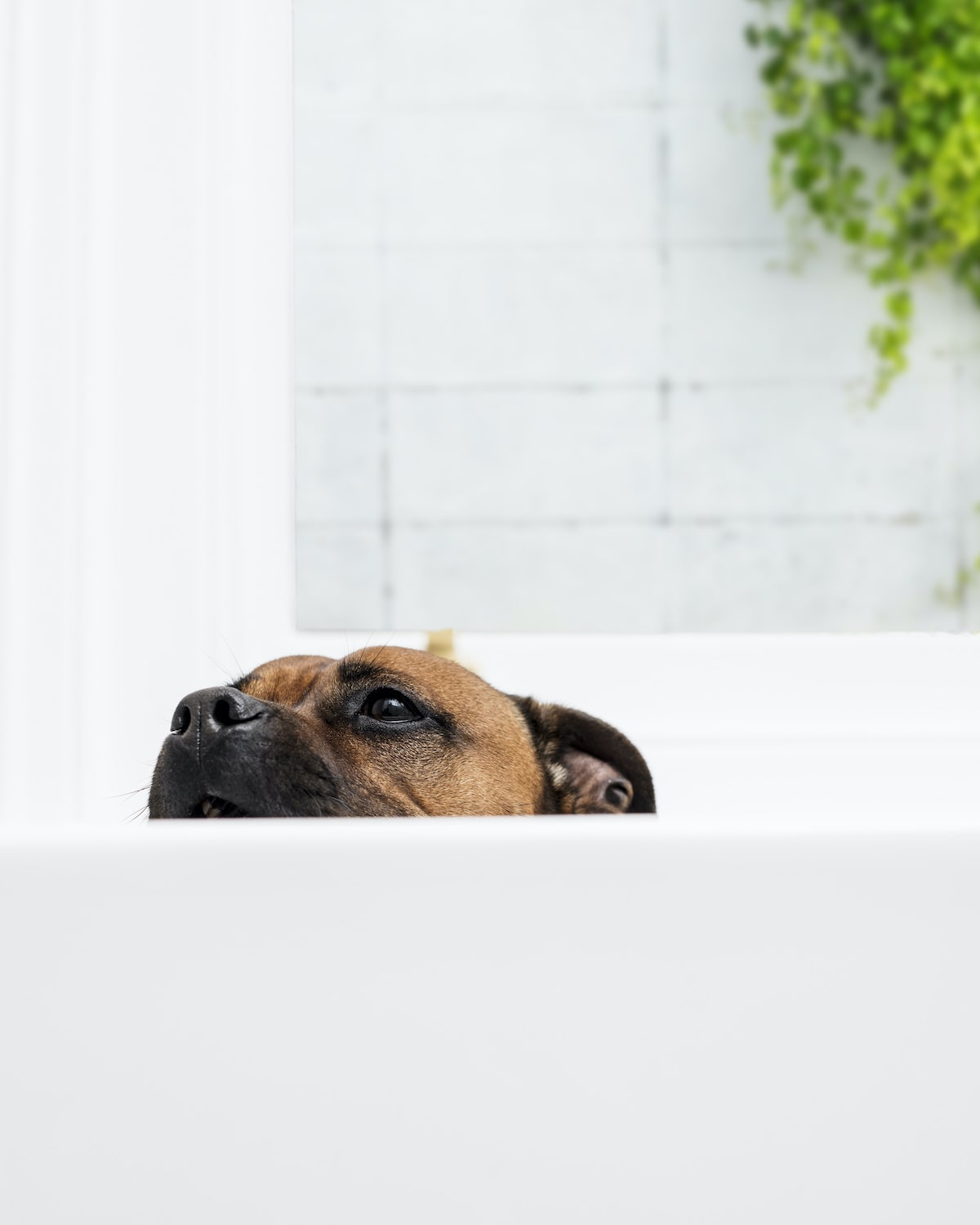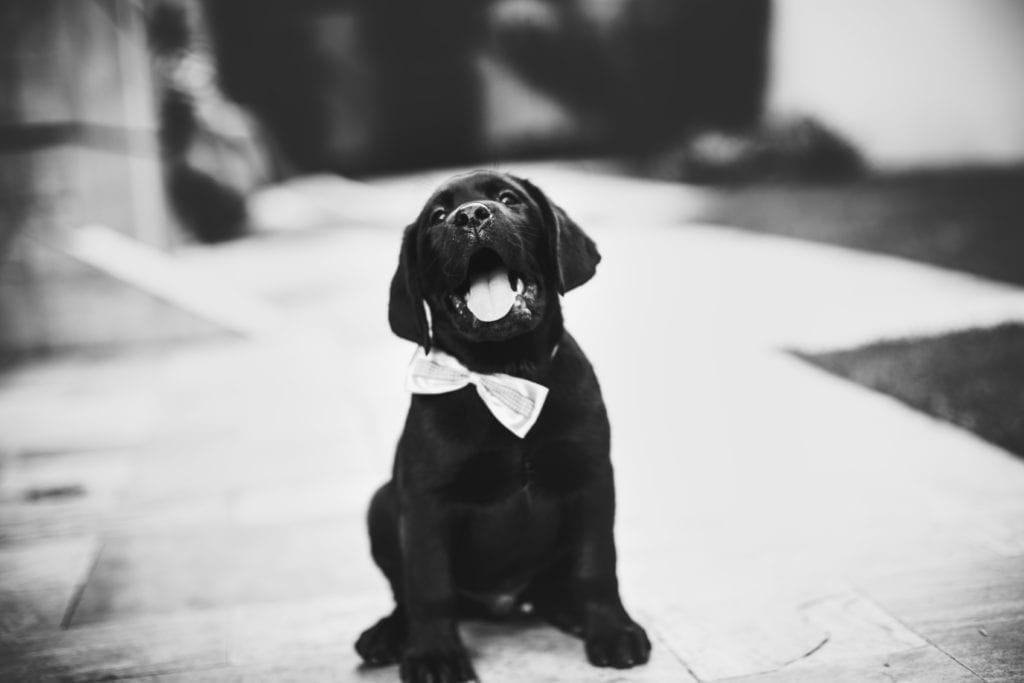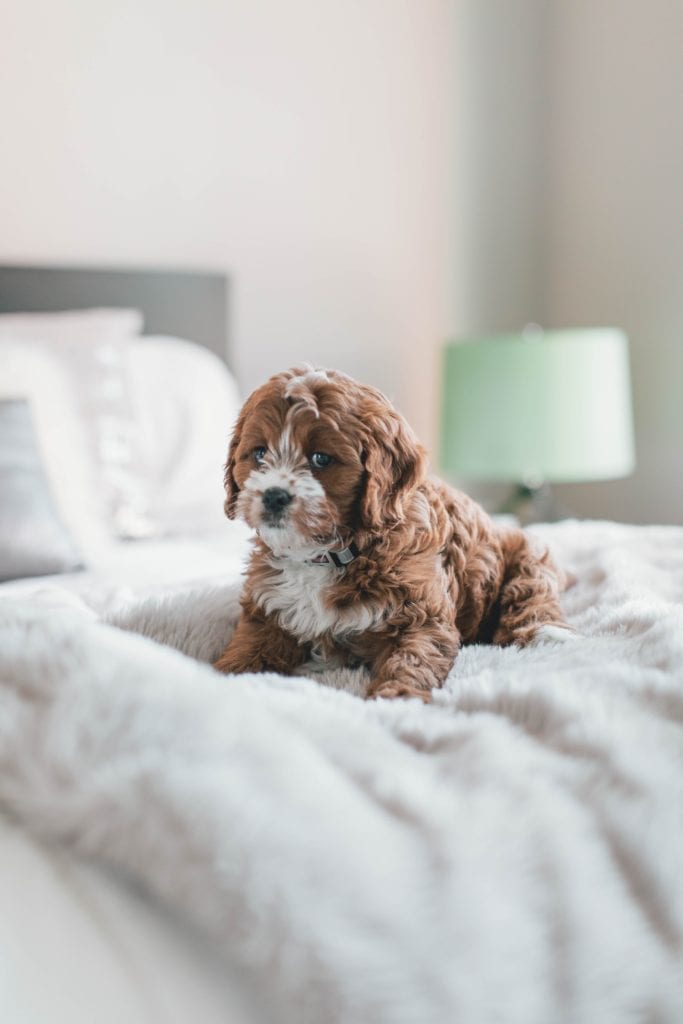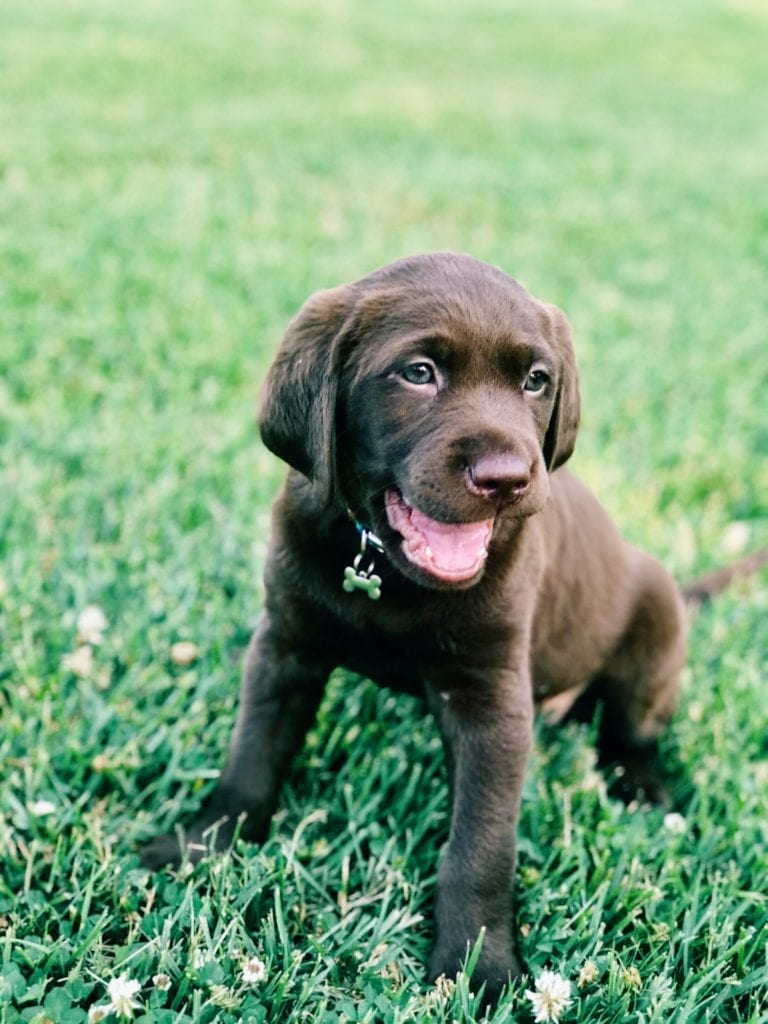3 Steps On How To Toilet Train Puppies

Toilet training puppies is a fact of life. Everyone goes through it and everyone has their own opinions on the ‘best’ way to do it. Not that we don’t trust your neighbour’s sister’s cousin who has lots of advice on how you should toilet train a puppy, but we asked Dr. Katrina Warren for some expert advice on how to toilet train puppies.
1. Set them up to win – that means treats and taking them outside to pee frequently

Dr. Katrina says the key to housetraining is setting your puppy up to win. This includes making a big fuss with lots of praise and treats EVERY time your pup goes to the bathroom in the right area. Rewarding your pup with something delicious and tasty is a very easy way to reinforce good behaviour. Check out Houndztooth’s yummy pet products in our natural pet store. Basically, you want your puppy to think it’s the bees knees every time it goes to the bathroom outside.
Let’s not judge your puppy too much for needing to pee ~all~ the time. An eight-week-old puppy has a tiny bladder and will need to ‘go’ every couple of hours, so make sure they have lots of opportunities to do their business outside and aren’t just left free to roam in the house. Going outside with your new puppy and waiting while they go to the bathroom (you normally won’t need to wait long), then rewarding them on the spot, will make sure they don’t have an opportunity to make a mistake and will again reinforce this good behaviour straight away.
2. Know the signs – puppies pee at the same time

Did you know that puppies will need to go to the toilet shortly after waking up, eating and getting excited during playtime? This means you need to take your puppy outside after it gets up in the morning or after a long nap, and also straight after dinner. Don’t forget to wait with them while they pee so you can give them a treat for being such a good boy/girl.
Keep a lookout for your puppy sniffing furiously and walking around in circles – these are some certain signs that they’re looking for somewhere that smells good for a wee. Quickly pick them up and walk them straight outside to the place where you want them to relieve themselves, and wait so you can reward them for going to the bathroom in the right place
3. Use commands – “go toilet”, “do wees”

Yes, you’ll feel silly walking outside saying “go toilet” in a high-pitched, enthusiastic voice, but it works. Every time you take your puppy out to go to the bathroom or it starts sniffing around on walks, use a ‘bathroom command’ so it starts associating this phrase or word from a young age. Trust us, having a dog that can go to the bathroom on command will be very, very handy later in life.
And if your pup has an accident, don’t punish it or rub its nose in it. This will not work as your dog isn’t going to understand why you’re angry. Disciplining a dog for weeing is more likely going to make them scared of you or reluctant to pee in front of you, which will make it even more difficult when you want to reinforce good behaviour.
